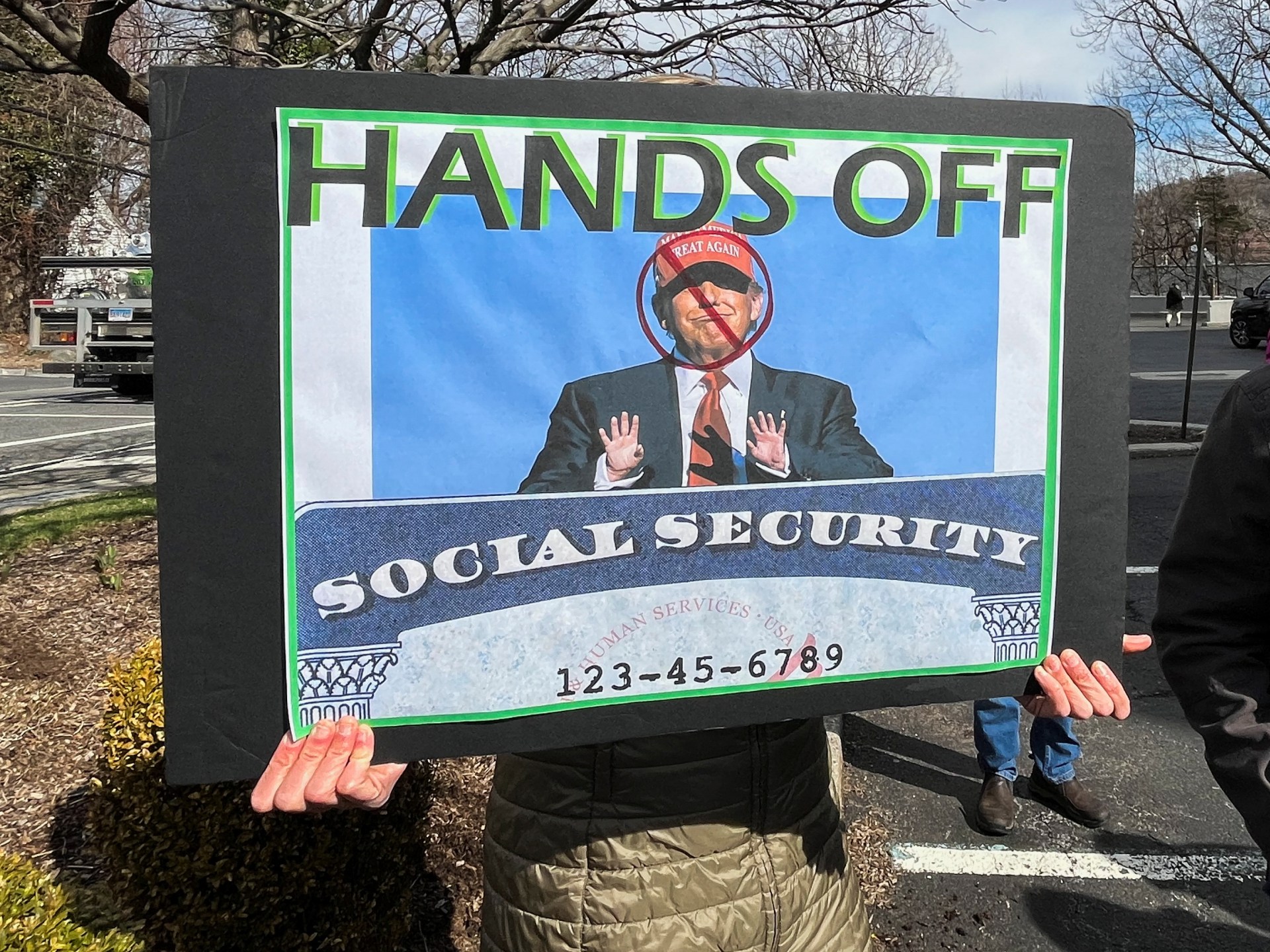In two cases involving access to government records and who should have access to them, the US Supreme Court has chosen to support President Donald Trump’s administration.
The six-member conservative majority overturned a lower court’s ruling on Friday that limited the types of data accessible by Trump’s Department of Government Efficiency (DOGE) through the Social Security Administration (SSA).
The majority also decided that DOGE was not required to provide documents under the government transparency law known as the Freedom of Information Act (FOIA).
Sonia Sotomayor, Ketanji Brown Jackson, and Elena Kagan, the three left-leaning justices on the Supreme Court, disagreed with the majority’s decision in both cases.
Trump’s campaign focused on reimagining the federal government and reducing bureaucratic “bloat” in a key way.
DOGE was created on November 13 to “dismantle government bureaucracy, reduce excessive regulations, reduce wasteful expenditures, and restructure Federal Agencies,” according to the release date.
At first, it was unclear whether DOGE would work with the executive branch, whether it would be a new department, a new department, or a private organization.
However, when Trump took the oath of office on January 20, he announced that DOGE, an initiative that was started by former president Barack Obama, would replace the existing US Digital Service.
Since then, the government efficiency panel has initiated extensive federal government reform, implementing widespread layoffs, and attempting to close organizations like the US Agency for International Development (USAID).
Although many of the claims were refuted or questioned by journalists and experts, it also promoted savings it had made or fraud it had allegedly exposed.
In addition, DOGE’s extensive reforms of the federal government caused it to face criticism and concern, particularly as it sought greater control over sensitive data and systems.
Elon Musk, a billionaire and tech entrepreneur who had been a prominent supporter of Trump’s re-election campaign, led DOGE up until last week. However, following the end of the billionaire’s term as a “special government employee” in the White House, Musk and Trump have a public disagreement.
Due to this conflict, DOGE’s future is uncertain.
Social Security data can be accessed.
In order to combat waste, fraud, and abuse, DOGE’s controversial initiatives have included a push to access Social Security data.
The president and Musk made fabricated claims that millions of people with addresses containing people who are at least 150 years old at the start of Trump’s second term were receiving Social Security benefits. However, fact-checkers quickly refuted that assertion.
Instead, they pointed out that a code has been put in place by the Social Security Administration to stop payments for those who are deemed to be at least 115 years old.
They also pointed out that the Trump administration’s confusion may be caused by COBOL’s programming language flagging incomplete birthdates in the Social Security system with birthdates dating back 150 years. A 2024 inspector general report found that less than 1% of Social Security payments were made erroneously.
Musk called for the Social Security Administration to be eliminated, while Trump officials also criticized it.
Due to the sensitive nature of such information, US District Judge Ellen Lipton Hollander in March blocked DOGE from having unrestricted access to Social Security data.
Social Security numbers, for instance, are crucial for establishing a person’s identity in the US, and their release could compromise privacy.
According to Lipton Hollander, DOGE “never identified or articulated even a single reason” for the DOGE Team’s need for unrestricted access to SSA’s entire record systems. She questioned why DOGE didn’t try to be “more tailored.”
She wrote in her decision that the government simply reiterated its call to modernize the system and find fraud. Its method of doing so translates to using a sledgehammer to fly.
However, the judge’s ruling did allow DOGE to view anonymized data without providing any personally identifying information.
However, the Trump administration filed an appeal with the Supreme Court, alleging that Judge Lipton Hollander had overstepped her bounds by preventing DOGE’s access.
In an unsigned decision, the Supreme Court upheld Lipton Hollander’s temporary data restrictions on Friday.
However, Justice Brown Jackson wrote a sour dissent in the Supreme Court, claiming that the court was willing to uphold rules to support a president who was not willing to let legal disputes arise in lower courts.
This Court “puts on its emergency-responder gear, rushes to the scene, and uses its equitable power to fan the flames rather than to extinguish them,” Brown Jackson wrote.
She claimed that if DOGE were temporarily barred from accessing Social Security data, the Trump administration had not established that any “irreparable harm” would result.
However, she claimed that the court was “jettisoning careful judicial decision-making and seriously risking the privacy of millions of Americans” by granting the Trump administration’s emergency petition.
Do transparency laws apply to DOGE?
According to federal transparency laws, the second Supreme Court decision from Friday involved DOGE itself.
The Citizens for Responsibility and Ethics in Washington (CREW), a government watchdog organization, filed the lawsuit as part of it.
It argued that DOGE’s broad powers suggested that it should be subject to FOIA-style laws, just like any other executive agency. CREW claimed, however, that DOGE’s structures had been shielded from outside inquiries by the ambiguity surrounding them.
The lack of clarity regarding DOGE’s authority, according to CREW, raises an open question in a statement despite the information that is readily available to the public.
The organization wanted DOGE to be required to provide details about how it operates.
The Supreme Court halted the lower court’s decision on Friday (PDF), after a US district judge had sided with CREW’s request for records in April (PDF). The court of appeals received the case’s request for a narrowing of the April order.
The conservative majority of the Supreme Court ruled that “any inquiry into whether an entity is an agency for the purposes of the Freedom of Information Act cannot turn on the entity’s capacity to persuade.”
Source: Aljazeera

Leave a Reply